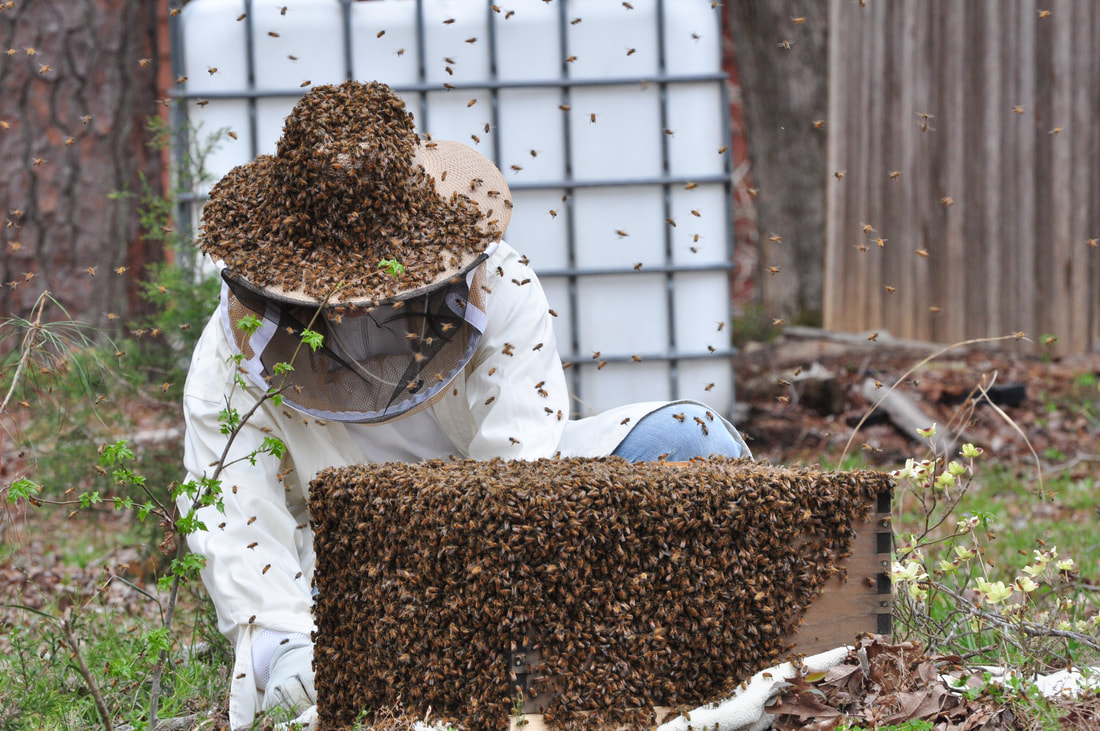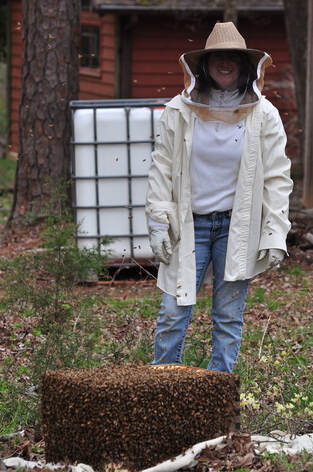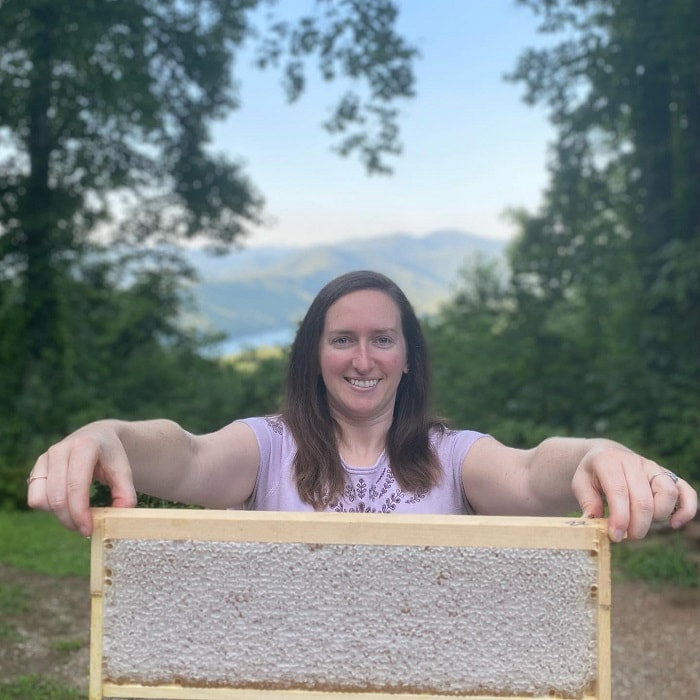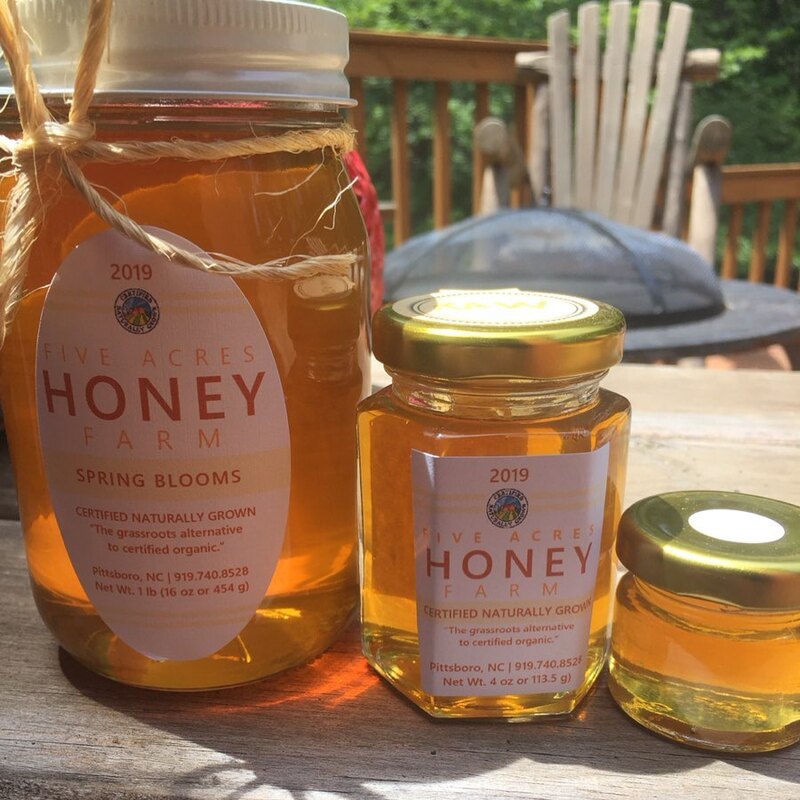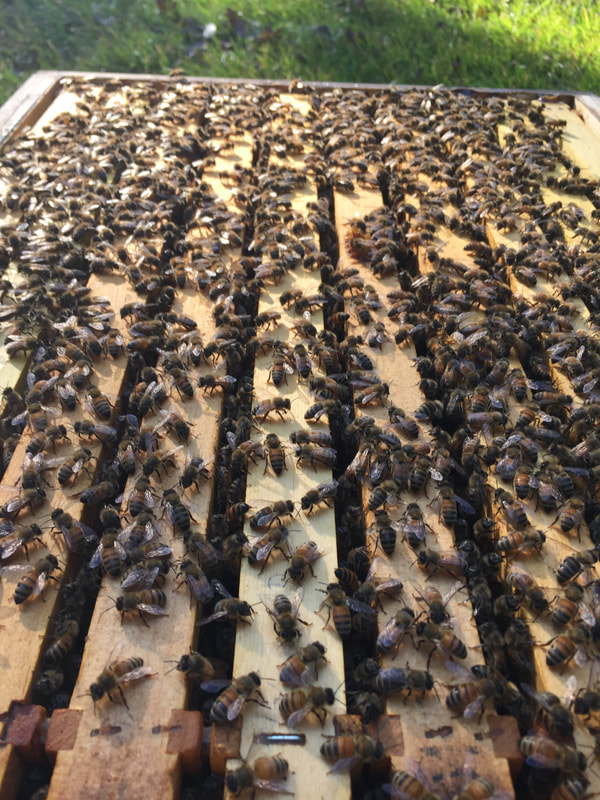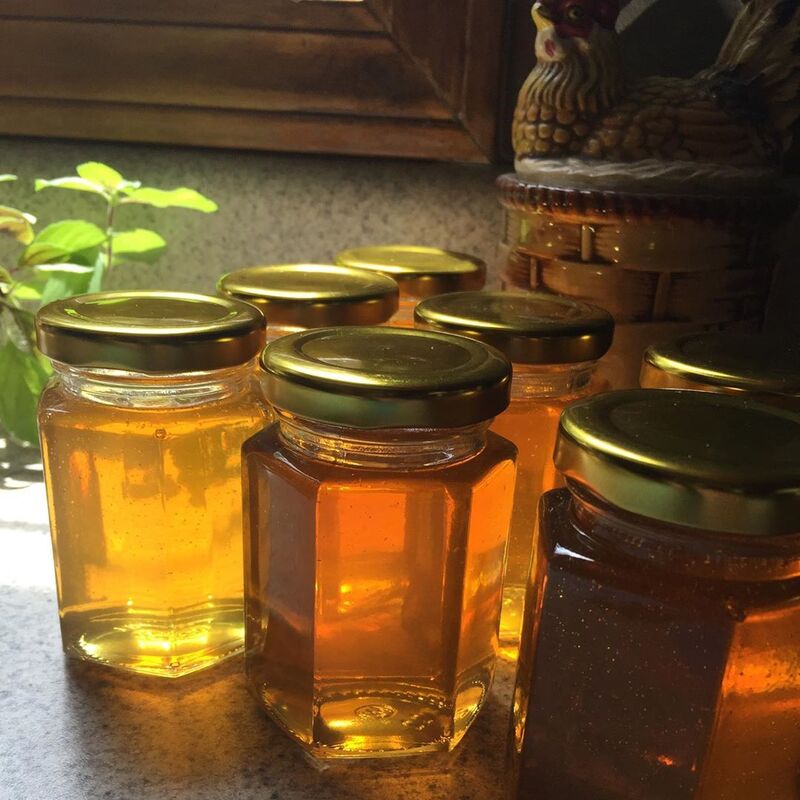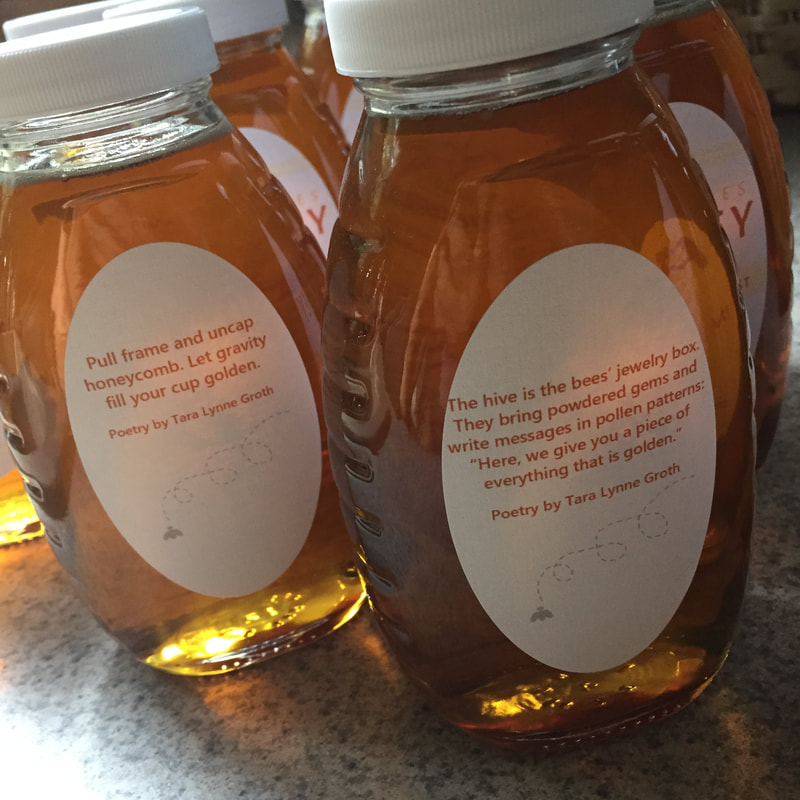Natural beekeeping
|
Tara Lynne Groth
Journeyman Beekeeper & Permaculture Designer I've been a North Carolina beekeeper since 2017 and received my Journeyman certification in 2021.
Ecological living is very important to me. I'm a certified permaculture designer and use this approach to conserve and grow diverse forage for pollinators on our land. Beyond conserving existing species, I also routinely add woodland botanicals, heirloom apple trees, once-endangered plants like the Snowbank white blackberry, and resilient varieties such as the Dunstan chestnut. Between my apiaries in Pittsboro and Robbinsville, North Carolina, I steward more than 17 acres. |
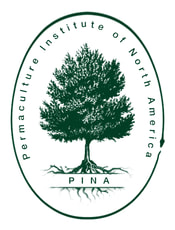
I'm a member of:
- Carolina Farm Stewardship Association
- Chatham County Beekeepers Association (President, 6 months, 2021)
- North Carolina State Beekeepers Association
- Smoky Mountain Beekeepers Association
- Xerces Society Pollinator Conservation Program
My North Carolina honey farms
Five Acres Honey Farm and Five Acres Honey Farm West are chemical-free apiaries located near Chapel Hill and Bryson City, North Carolina.
You can book a retreat at Five Acres Honey Farm West in the 1BR, 1BA cabin suite near Lake Fontana.
You can book a retreat at Five Acres Honey Farm West in the 1BR, 1BA cabin suite near Lake Fontana.
About natural beekeeping practices
Natural beekeeping means many different things. I often speak to beekeeping clubs about the different interpretations behind this topic. In my apiaries, I manage the hives without synthetic chemicals, antibiotics, or GMOs. I help the bees control varroa mites and small hives beetles by strategically timing brood breaks, applying beneficial nematodes, and implementing organic inputs when the bees need it. Focusing on hive health helps the bees thrive. We can then enjoy extra products from the hive knowing that they weren't unnecessarily exposed to chemicals.
Natural beekeeping means many different things. I often speak to beekeeping clubs about the different interpretations behind this topic. In my apiaries, I manage the hives without synthetic chemicals, antibiotics, or GMOs. I help the bees control varroa mites and small hives beetles by strategically timing brood breaks, applying beneficial nematodes, and implementing organic inputs when the bees need it. Focusing on hive health helps the bees thrive. We can then enjoy extra products from the hive knowing that they weren't unnecessarily exposed to chemicals.
Why I choose natural beekeeping
|
I place honey bee health as the top priority
Honey production, beeswax, propolis and pollen harvesting, and commercial pollinating services are not primary goals of Five Acres Honey Farm. |
Hives build their colonies on “fresh” comb
I remove 20% of all comb annually, which means no hive has comb more than 5 years old. Old comb could harbor pests, mold, and spores that could risk the hive’s health over time. |
Regular hive inspections help monitor and support healthy colonies
During peak seasons I might inspect certain hives every 5-to-7 days. This helps prevent swarms, provide each colony the space it needs, identify and treat pests, and ensure every hive has adequate food to support its size. |
Raw North Carolina honey
|
All honey produced by Five Acres Honey Farm is minimally-filtered and bottled raw. After extraction in a hand-cranked stainless-steel extractor, the honey settles for 2 or 3 days in food-grade, BPA-free buckets, and then it's immediately bottled. I only bottle in glass. Learn about nutrients in honey.
Since hive health is the #1 priority here, honey is extracted only from hives that produce a surplus. As a small-batch producer, I hand-pour and label every jar. With such a small inventory, it’s not viable to maintain an online store. Learn where to buy honey and how to reserve honey from a future harvest. |
Five Acres Honey Farm joined the Xerces Society Pollinator Conservation Program in 2023
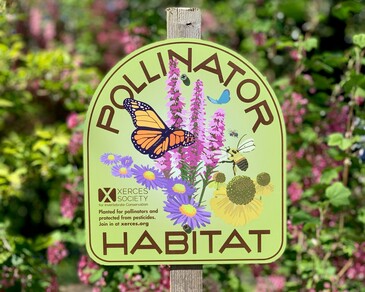
The Xerces Society is a "science-based conservation organization, working with diverse partners that include scientists, land managers, educators, policymakers, farmers, and communities." I pledged to grow pollinator-friendly flowers, provide nest sites, avoid pesticides, and spread the word. I help to do the latter through speaking engagements any my blog.
Five Acres Honey Farm joined the Butterfly Highway in 2021
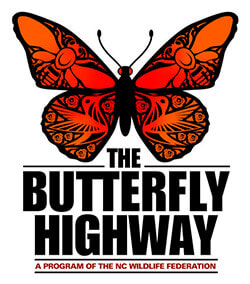
The Butterfly Highway is a conservation program from the North Carolina Wildlife Federation that helps restore native pollinator habitats. Five Acres Honey Farm joined this network dedicated to fostering and adding native flowering plants such as yarrow, redbud, milkweed, beautyberries, and more.
Five Acres Honey Farm became a Certified Wildlife Habitat® in 2018
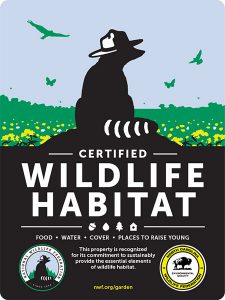
About Certified Wildlife Habitats®
The National Wildlife Federation’s Certified Wildlife Habitats are areas dedicated to providing food, water, cover, places to raise young, and sustainable practices for wildlife.
Food. Five Acres Honey Farm regularly adds nectar-producing plants and trees, nut- and fruit-bearing plants, and pollen sources. I added an heirloom apple orchard in 2020.
Water. In addition to a natural vernal creek that runs through the property, I installed a pond for the bees.
Cover and places to raise young. Beyond rock piles, naturally wooded areas, and a meadow, we continue to add shelters such as an owl house, bee hotel for native pollinators, birdhouses, and a bat house. We minimally harvest trees for firewood and prefer to leave fallen trees for insects and animals.
Sustainable practices. In addition to two compost piles, we try to manage most of our food waste through vermiculture. A worm bin allows us to produce nutrient-rich and chemical-free compost. We also practice Integrated Pest Management and seek to add native plants whenever possible.
The National Wildlife Federation’s Certified Wildlife Habitats are areas dedicated to providing food, water, cover, places to raise young, and sustainable practices for wildlife.
Food. Five Acres Honey Farm regularly adds nectar-producing plants and trees, nut- and fruit-bearing plants, and pollen sources. I added an heirloom apple orchard in 2020.
Water. In addition to a natural vernal creek that runs through the property, I installed a pond for the bees.
Cover and places to raise young. Beyond rock piles, naturally wooded areas, and a meadow, we continue to add shelters such as an owl house, bee hotel for native pollinators, birdhouses, and a bat house. We minimally harvest trees for firewood and prefer to leave fallen trees for insects and animals.
Sustainable practices. In addition to two compost piles, we try to manage most of our food waste through vermiculture. A worm bin allows us to produce nutrient-rich and chemical-free compost. We also practice Integrated Pest Management and seek to add native plants whenever possible.
